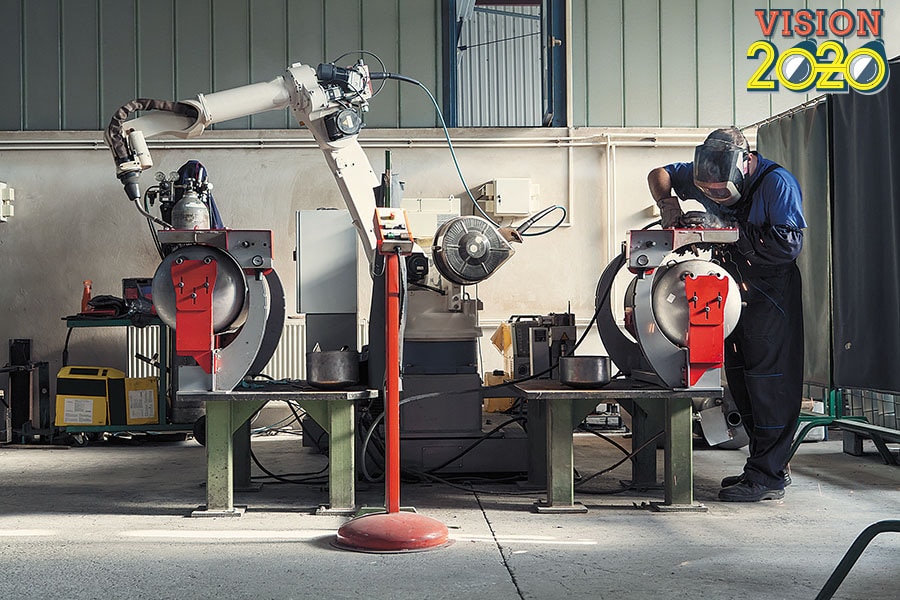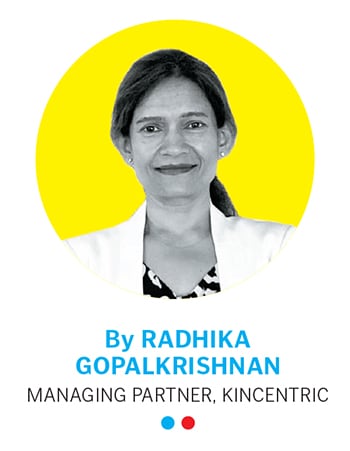'In jobs, expertise from experience is no longer critical'
The past years have seen certain kinds of skills, official hierarchies and old-school leadership become redundant


 Even with technology and automation, human decision-making in exercising judgement will be critical
Even with technology and automation, human decision-making in exercising judgement will be critical
Image: Shutterstock[br]The past decade saw the emergence of Instagram and a decadently delightful full-time job option of being an Influencer. ‘Digital’ became the buzz word, like ‘value add’ and ‘paradigm shift’ were in the previous decades. ‘Disruption’ was another word that became a way of life and we witnessed many big names and established players struggling to stay relevant. As we enter the last year of the decade and look ahead, what’s increasingly clear is that the influencers and iPhones and individuality are giving way to collaboration and connectedness. The millennials have entered the workforce and will be managers in the next. As we look back and look ahead here are some learnings from the work world.
As we enter the last year of the decade and look ahead, what’s increasingly clear is that the influencers and iPhones and individuality are giving way to collaboration and connectedness. The millennials have entered the workforce and will be managers in the next. As we look back and look ahead here are some learnings from the work world.
JOB REDUNDANCY
Data churning skills are increasingly becoming redundant. Jobs that relied on knowledge and expertise that came from experience are no longer critical they are all easily automated. You can connect different pools of data and information through blockchain and artificial intelligence (AI) for complex analytics and make decisions on the ground. Earlier, these took days to get approval from the headquarters. Any bill-clearing organisation will tell you that both the number and speed of claims being processed have increased. Ready availability of data ensures you don’t need decisions from the centre they are more real-time and available where the action is. The skills required now would move from dependence on knowledge to designing the algorithm or dashboards to capture the relevant parameters. More is being done with less, as transaction-based jobs get replaced by automation and technology.
While collecting and sieving data becomes easy, connecting data will remain crucial. Identifying the seemingly disparate relationship between variables will need human intelligence and a skill set that will command a premium. To creatively think of inter-connectedness and discern what is relevant in the avalanche of data will need superior application of all that knowledge. While technology has enabled access, and data is readily available to make predictions much more refined, the skill set that will come into play now will be ‘judgement’.
PE capital will drive FDI growth: Warburg Pincus" India Head
Whether they are go/ no-go decisions or complex problem solving, the human decision-making in exercising judgement will remain critical. A good differentiation between prediction and judgement is captured by Ajay Agrawal, Joshua Gans and Avi Goldfarb in their book Prediction Machines: The Simple Economics of Artificial Intelligence. “Having better prediction raises the value of judgement. After all, it doesn’t help to know the likelihood of rain if you don’t know how much you like staying dry or how much you hate carrying an umbrella. Prediction machines don’t provide judgement. Only humans do, because only humans can express the relative rewards from taking different actions. As AI takes over prediction, humans will do less of the combined prediction-judgement routine of decision-making and focus more on the judgement role alone.”
CHANGING HIERARCHIES
Workplace social technology platforms that cut across organisational structures enable crowdsourcing of solutions. Problems are socialised and good ideas don’t need to go through the proper channels. They can come from anyone anywhere in the so-called value chain.
Access to the top management is not restricted. Mediums to communicate have increased, barriers have been broken and employees at any level can be involved in solving problems. Employee hackathons are also increasingly popular to meet the need for speed and comprehensive solution-finding. In the past, organisation hierarchy prevented access to information now information is readily available. Empowerment is not a management jargon but a must. Social technology has democratised decisions and hence leadership today is not level-based, it comes from the kind of work and impact. The command-and-control boss will be made redundant by the coach-and-empowering boss. Distributed leadership will be critical.
PE"s journey has been one of growth: General Atlantics" Sandeep Naik
Two things will impact middle-management in organisation structures: a) Social media is already playing the role of connector, and middle-management will need to rethink their role it won’t suffice to be the via media b) With timelines getting crunched, the very word ‘organisation’, which implies stability, will need to be reinvented to provide dynamism and flexibility. With decisions being taken where the action is, working like a start-up will be the required mindset. The need to organise will be in a way that encourages agility and enables crunching of turnaround and go-to-market times.
MULTI-FUNCTIONAL
Collaboration, an open mindset and agility will become core skills to thrive in this environment. Far from alienating people, technology in the new world has made collaboration the order of the day. Customer problems might need to be viewed from multiple aspects, and hence different departments need to come together. Agile teams are formed that break functional silos and shorten delivery cycles. Looking at problems from a client-centric perspective needs multiple service providers and specialists to come together and create a unified solution.
As the speed to market increases, individuals with broad skill sets and experiences across a range of disciplines and an openness to rope in experts will be able to provide integrated solutions. You will need individuals bringing in multi-functional exposure to teams with deep specialists to design seamless solutions: Behavioural science and neuroscience will go hand-in-hand use of psychometrics will pair up with data scientists to give predictive analytics.
LEADER AS THE HOST
The Marvel Cinematic Universe is minting millions of dollars having early on spotted this need: Their heroes are part of a shared universe and the ensemble cast brings in complementary skill sets to jointly fight. It is not the one perfect superhero, but a set of Avengers who come together. Similarly, a multi-functional leader who can enable different specialists to thrive will be critical. We saw the death of the mobile phone as we knew it and embraced the smartphone in this decade. This more than ever embodies the fact that you can be the host supporting all apps and don’t need to reinvent and start from scratch.
With all the distractions, leadership will mean better management of bandwidth. From governing and controlling, it will need to shift to empowering and inspiring. From managing the present, the leader’s role in shaping the future will be most important. If technology is determining our future, then it is imperative that leaders be conversant in new technology and its implications to stay ahead.
Bill Gates uttered the now famous phrase “content is king”, ushering in the World Wide Web, and a new way of production and consumption. In the next decade it will be ‘context is kingdom’, and the ability to manage changing contexts will determine success.
First Published: Jan 13, 2020, 13:44
Subscribe Now